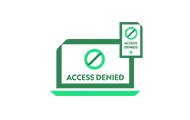Become a scammer's nightmare
We're on a mission to help all Kiwi become a scammer's nightmare. Test your defences and learn tips to increase your protection.
Scams to look out for
What to do if you've been scammed
Anyone can fall for a scam. If you suspect that you've been scammed, take action immediately.
Take action
If you've been scammed, move quickly. See what steps to take to help reduce the impact.
I've been scammed24/7 support
Fraud and scam support is available around the clock. Call 0800 113 355 or +64 4 473 1133 from overseas.
Call 0800 113 355Protect yourself
Simple actions can significantly improve your online and financial security.
What you can do















